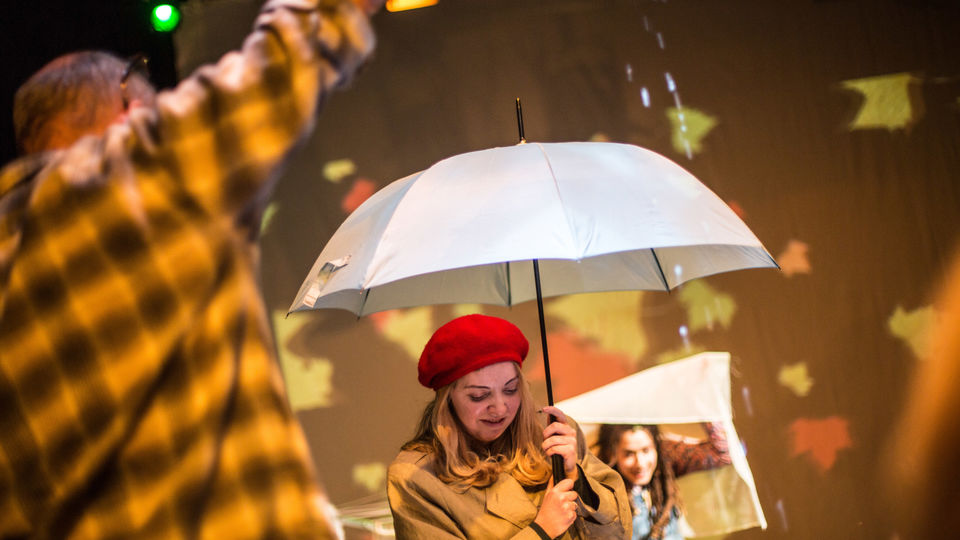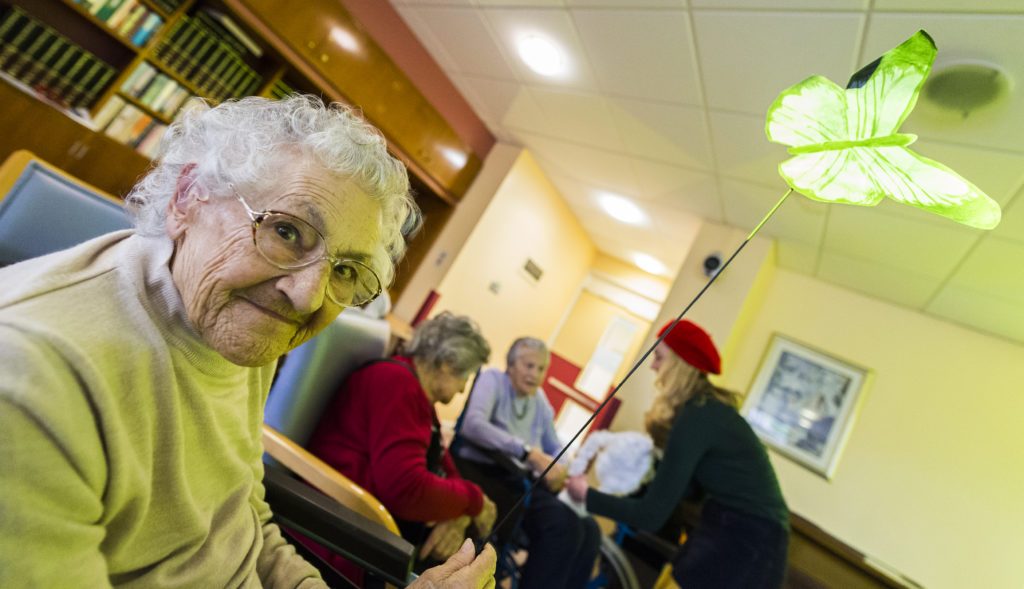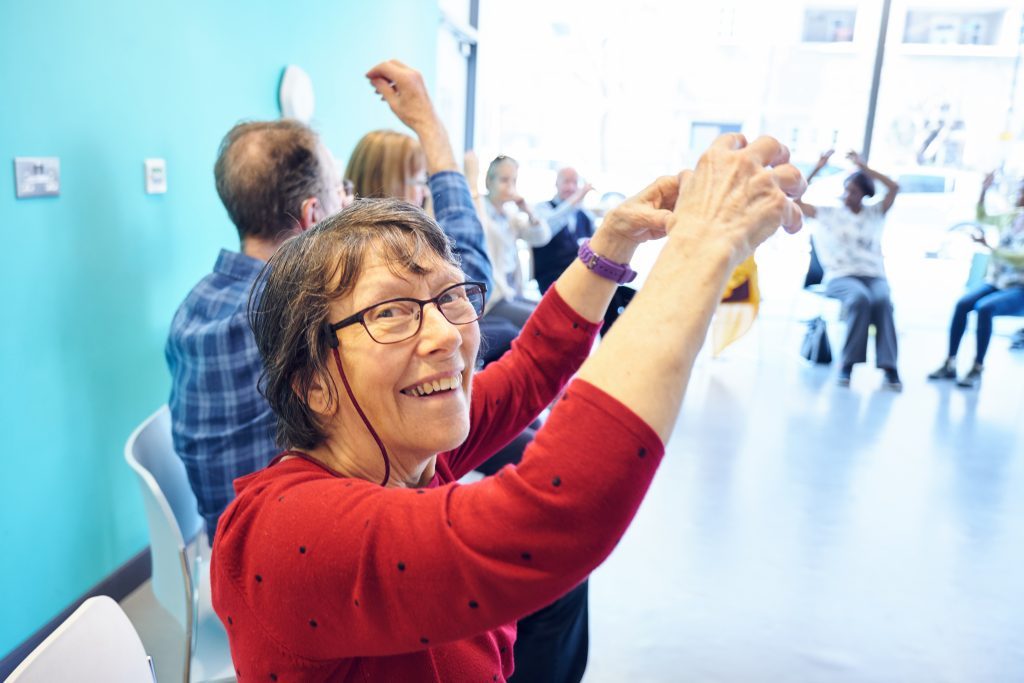Reflection of the role of the facilitator when working with people with dementia:
(Below are pictures of people with Dementia engaging with the Arts, I could not get permission to use the photos we used during our time at Connaught Court due to safeguarding).

During my time at York St John University, I have worked with different communities, such as young adults, children and people with dementia. I have become increasingly interested in how the use of theatre and the arts can be helpful to many different communities, such as people with dementia, young adults and children, and how theatre can be used ‘in response to ordinary people and their stories, local settings and priorities.’ (Prentiki and Shelia Preston, 2009 :9).
During the Social Context Module, I became involved in a joint project between York St John University, and Connaught Court working closely with people with dementia. This was an experience which fell within the realms of reminiscent theatre, and creative engagement. The module invited me to enhance my facilitation skills by inviting the residents to share their stories and engage with us through the use of singing, movement, imagery and poetry.
We wanted to create an experience which invited the residents to regain a sense of self by bringing in activities which would encourage the residents to reminisce over ‘their younger days’ (Schweitzer, 2007:23) And ‘of the things they had done and places they had been’ (Schweitzer, 2007:23). Each week we would bring in a different stimulus, such as, as a day at the beach, or going for a picnic.
Throughout this process, my co facilitators and I conducted a number of workshops which invited the residents to interact with us creatively but also invited the residents to talk to us about their stories and things they enjoyed doing. We later performed these stories back to them, and used poetry, puppetry, singing and dance to invite the residents into an interactive, creative engagement.
This experience was one of the pongiest moments within my degree. I was overwhelmed to see how the activities we were bringing into the residential home would create so many positive responses from the residents.

It was this moment within my degree, that shaped my practice and gave me the skills necessary develop myself as a facilitator, a theatre maker and a performer. There were times during this module, where I could physically see the impact our practice was having on the residents, and I could see the joy we were bringing to the residents. It was an experience which portrayed the impact singing and performance can have on people with dementia, and the positive feelings it can bring them. The experience allowed me to see how performance and access to the arts made the residents feel valued because it invited them to be a ‘a part of the creative world.’ (Hilary and Adams, 2011 :11).

Photo Credit: Arts4Dementia 2019
It is this experience which has inspired me too pursue a career within creative engagement, and has given me the relevant skills, knowledge and understanding to create work for, by and with different groups of people.
It is this module which has encouraged me to deepen my experience of facilitation by applying for Creative Engagement Coordinator roles and outreach programmes within the Yorkshire area. I am in the process of applying for jobs which require the use of the skills I developed on this module, and I have been applying to companies such as Mind The Cap, Leeds Playhouse and Thirsk Rural Arts. It was this module which taught me to use my skills as a facilitator, performer and theatre maker to create a dementia friendly performance which enhanced my practice and provided me with an opportunity to use theatre and creative engagement to create a positive impact on the residents.
- J, Hayes and S, Povey (2011) The Creative Arts In Dementia Care. London: Jessica Kingsley publishers.
- P, Schweitzer (2007) Reminiscence Theatre. London: Age Exchange Theatre Trust.
- T, Adams and L, Hilary (2011) Creative Approaches in Dementia Care. London: Palgrave Macmillan
Below are my applications.